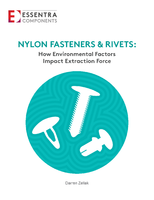Hybrid Electric Tractor to be tested at Long Beach port.
Press Release Summary:
Plug-in hybrid electric terminal tractor, used to move shipping containers and cargo, will be tested over a period of 3 months at a Port of Long Beach shipping terminal. EPRI (Electric Power Research Institute) is coordinating this effort, part of a 12-month project, which could lead to the replacement of diesel-powered tractors if successful. Overall, the goal is to subsequently reduce emissions of greenhouse gases and improve energy efficiency of port operations.
Original Press Release:
Plug-In Hybrid Electric Cargo-Moving Tractor to be Tested at Port of Long Beach Shipping Terminal
12-Month Project to Document Performance in U.S. Ports
PALO ALTO, Calif. - (August 10, 2009) - A plug-in hybrid electric "terminal tractor" used to move shipping containers and cargo within the port will be tested at a Port of Long Beach shipping terminal. If this heavy-duty application of hybrid electric technology proves successful at Long Beach and other ports then it could replace diesel-powered tractors on a wide scale, reducing emissions of greenhouse gases and improving energy efficiency of port operations.
The Electric Power Research Institute is coordinating the project among several ports and will also compile and analyze project data related to the tractor's performance, including emissions, charging, diesel fuel reduction and other aspects. The equipment will be tested at SSA Container Terminal on Pier A at the Port of Long Beach for 3 months.
US Hybrid Corporation converted the diesel powered vehicle, which is similar in appearance to a tractor cab, into a hybrid which has the ability to be refueled from the electric grid. As a plug-in hybrid electric vehicle (PHEV) the tractor will be able to move containers weighing up to 95,000 pounds as its diesel counterparts can, but unlike diesels will not idle its engine when inactive. Over a year of full-time operation it is expected that the PHEV tractor would use 3,000 gallons of fuel per year less than a similar diesel and significantly reduce emissions.
"Terminal tractors are the most prevalent piece of equipment at container ports and they typically idle 50 percent to 80 percent of the time they're in use," said Andra Rogers, senior project manager of Electric Transportation at EPRI. "It's feasible that by converting their tractor fleets ports could reduce emissions from this source by 80 percent for nitrogen oxides, 50 percent for carbon dioxide and significant amounts of other criteria pollutants. These vehicles can make a big impact on lowering a port's overall emissions."
"One of the central directives in our Green Port Policy is the adoption of new, environmentally friendly technologies," said Heather Tomley, Port of Long Beach Assistant Director of Environmental Planning. "We encourage private industry to develop, test and evaluate technologies such as this hybrid-electric terminal tractor." Currently there are approximately 754 diesel tractors at the Port of Long Beach.
The three-month Port of Long Beach demonstration project is part of a one-year demonstration, during which the tractor will also be tested and evaluated at ports in Savannah, Ga., Mobile, Ala., Houston, and New York City.
EPRI will document the tractor's performance and operation including electric grid system impact, vehicle system efficiency, emissions, costs and vehicle performance. EPRI also will evaluate performance and benefits relative to conventional diesel vehicles. The research is part of a broader program EPRI conducts on "non-road" electric applications for transportation, which includes forklifts, airport vehicles and power supply options for ships at dock, airliners at the gate and trucks at truck stops.
About EPRI
The Electric Power Research Institute, Inc. (EPRI, www.epri.com) conducts research and development relating to the generation, delivery and use of electricity for the benefit of the public. An independent, nonprofit organization, EPRI brings together its scientists and engineers as well as experts from academia and industry to help address challenges in electricity, including reliability, efficiency, health, safety and the environment. EPRI's members represent more than 90 percent of the electricity generated and delivered in the United States, and international participation extends to 40 countries. EPRI's principal offices and laboratories are located in Palo Alto, Calif.; Charlotte, N.C.; Knoxville, Tenn.; and Lenox, Mass.




